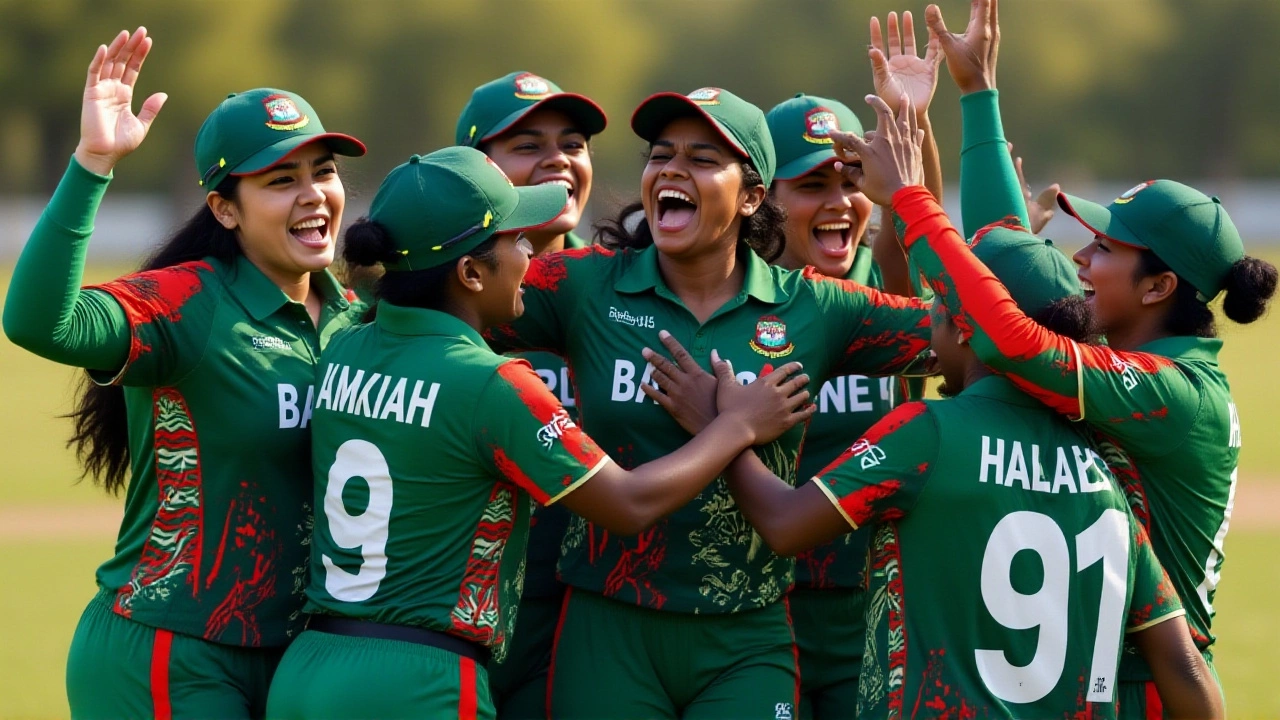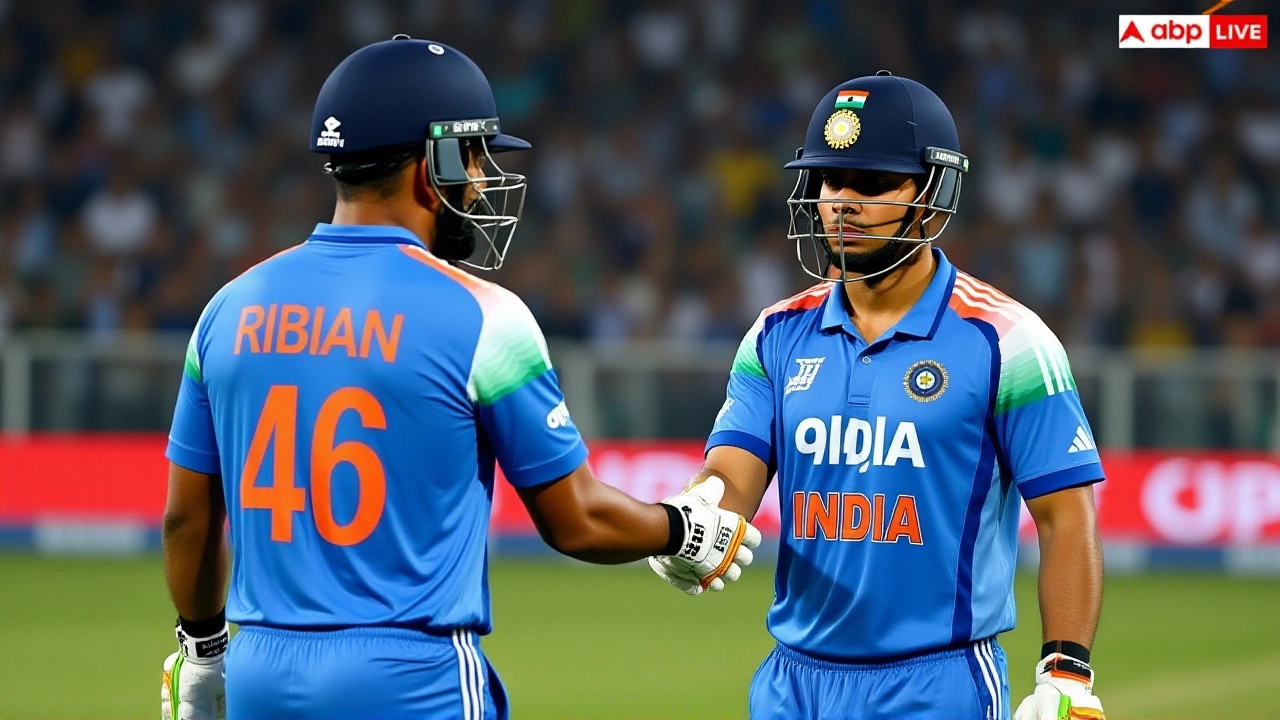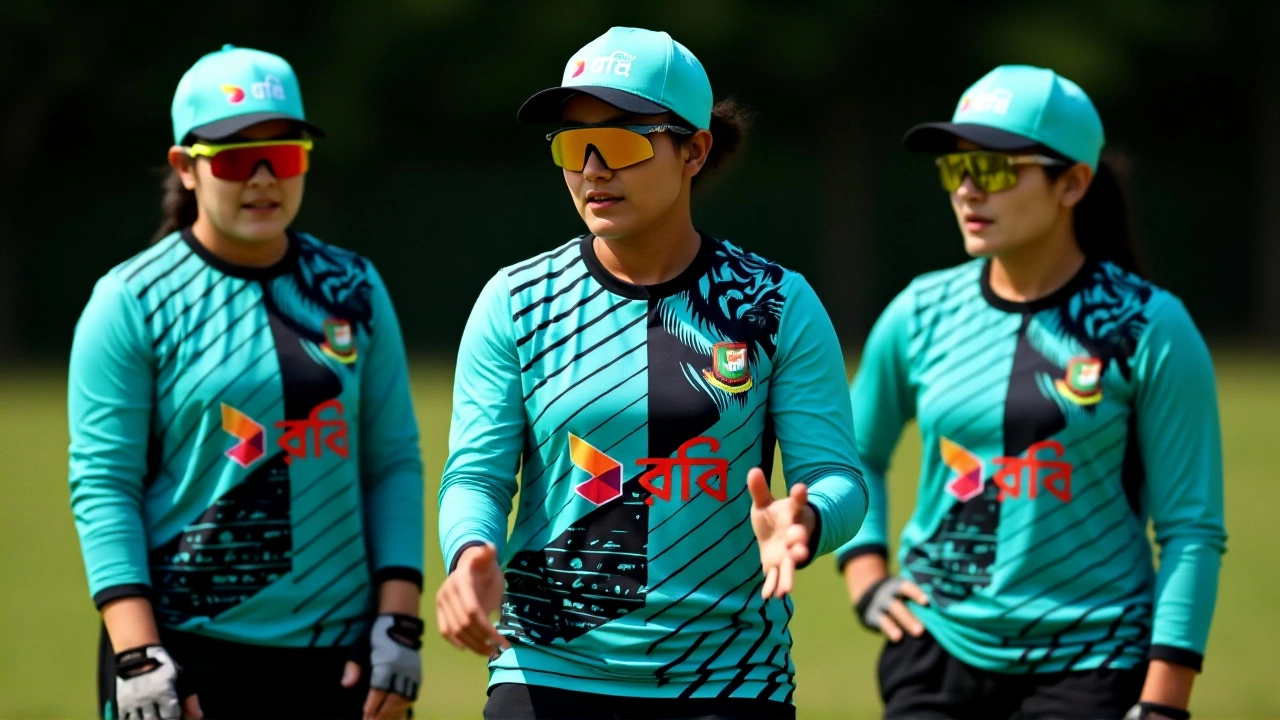When Jahanara Alam, a 32-year-old veteran pacer with 48 ODI wickets and 60 T20I wickets for Bangladesh, stepped away from international cricket after December 2024, she didn’t just leave the field—she walked out of a system she says was breaking her, and others. In a raw, unflinching interview with Kaler Kantho last week, Alam alleged that Nigar Sultana Joty, captain of the Bangladesh women’s team, regularly physically abused junior players. "She beats up the juniors a lot," Alam said. "Even during this World Cup, the juniors told me, 'No, I won't do this again. Then I'll have to get slapped again.' I heard from some people, 'I got beaten up yesterday.'" She added that during the Dubai tour, Joty called a junior into her room and slapped her. The claims, made just days after Bangladesh’s seventh-place finish at the Women's ODI World CupIndia and Sri Lanka, have sent shockwaves through South Asian cricket.
"Everyone’s suffering is different"
Alam, who hasn’t played for Bangladesh since facing Ireland in December 2024, described a culture of fear and favoritism. "I am not alone," she said. "Everyone in the Bangladesh team is more or less a victim. Everyone's suffering is different. Here, one or two people get advanced facilities and in some cases, only one person gets them." She traced the roots of this toxicity back to 2021, after the post-COVID restructuring. "The process of eliminating seniors like me began then," she said. "I was made captain of one of the three teams in the Bangladesh Games. The other two captains were Jyoti [Nigar Sultana] and Sharmin Sultana. The pressure on seniors started from then on."
Her words aren’t just about one captain—they point to a systemic rot. Alam, once a mainstay in the pace attack, was quietly phased out. No official reason was given. No farewell. No public acknowledgment. Just silence. And now, with her voice finally raised, the cracks in Bangladesh’s women’s cricket structure are impossible to ignore.
BCB’s swift denial—and its contradictions
The Bangladesh Cricket Board responded within hours. On November 18, 2025, it issued a statement calling Alam’s claims "baseless, fabricated and devoid of any truth." "The Board finds it unfortunate that such derogatory and scandalous claims have been made at a time when the Bangladesh Women’s Team is showing commendable progress and unity," it read. "We have found no evidence to support any of the claims made."
But here’s the twist: the BCB didn’t investigate. Didn’t interview players. Didn’t release medical or disciplinary records. Didn’t even ask Alam for proof. Instead, it dismissed her as "an individual who currently has no involvement or relevance in the plans of Bangladesh cricket." That’s not denial—it’s erasure. And it’s the same tactic used for decades to silence dissent in South Asian sports. When a senior player speaks up, the system doesn’t respond. It disappears them.

Nigar Sultana’s reply: A comment that backfired
Nigar Sultana Joty didn’t respond immediately. When she finally did, in an interview with Daily Cricket, she denied physically assaulting anyone. But then came the comment that made things worse: "Am I Harmanpreet Kaur?""
It was a reference to India’s 2023 incident in Dhaka, when Harmanpreet Kaur smashed her bat into the stumps after a disputed LBW call and later criticized the umpiring. The moment went viral. Fans accused her of taunting local players. Now, Joty’s remark wasn’t just defensive—it was dismissive. It implied: "If I’m not Harmanpreet, I can’t be expected to handle pressure." But it didn’t absolve her. It insulted the very players she’s supposed to lead.
"Nigar Sultana just keeps stumbling to new lows everyday," tweeted one fan. "You can't control other people's accusations but your statements are always in your control. Extremely unnecessary and classless pop at Harmanpreet Kaur."
What’s at stake: More than a captain’s reputation
Bangladesh women’s cricket has made strides. They’ve beaten Pakistan, pushed England close, and won a T20 World Cup qualifier. But progress without accountability is just performance. The team finished seventh in the World Cup—only one win in six matches. That’s not failure. It’s stagnation. And behind closed doors, players say the pressure is crushing.
Alam isn’t asking for special treatment. She’s asking for dignity. For a culture where juniors aren’t afraid to speak up. Where leadership isn’t measured by who gets the best gear, but by who lifts others up. The BCB claims "complete trust" in Joty. But trust without transparency is just fear dressed as loyalty.

What happens next?
So far, no independent inquiry has been announced. No player has been interviewed by the BCB’s internal ethics committee. No hotline for anonymous complaints has been opened. The team returns to training in Mirpur next month. The same Mirpur where the BCB headquarters sits—where decisions are made, not questioned.
If the BCB truly believes in progress, it won’t bury this. It will investigate. It will listen. It will protect those who speak up—not punish them. Because if this is how the captain treats juniors, imagine what the coaches do behind closed doors.
Frequently Asked Questions
How credible are Jahanara Alam’s allegations?
Alam’s claims are detailed, consistent, and corroborated by her long-standing role as a senior player who witnessed team dynamics firsthand. She provided specific incidents—including the Dubai tour slap and World Cup-era fears—without naming other victims, which is common in abusive environments where fear of retaliation persists. While the BCB denies them, its refusal to investigate undermines its credibility. No other player has publicly backed her, but silence isn’t proof of innocence.
Why did the BCB react so quickly instead of investigating?
The BCB’s swift denial suggests a desire to protect its public image rather than address internal issues. With the women’s team gaining visibility after the World Cup, the board likely feared reputational damage. But this is a pattern: when abuse allegations arise in South Asian cricket, institutions often silence critics instead of fixing systems. The lack of transparency—no interviews, no records, no inquiry—signals institutional fear, not integrity.
What impact could this have on Bangladesh women’s cricket?
If unaddressed, this scandal could deter young talent. Why join a team where seniors are pushed out and juniors are afraid to speak? The BCB’s funding and infrastructure are growing, but culture matters more than facilities. Without psychological safety, even the best coaching won’t produce champions. Other nations have faced similar issues—Australia and England now have independent player welfare officers. Bangladesh needs that, too.
Why did Nigar Sultana reference Harmanpreet Kaur?
Joty’s comment was an attempt to deflect blame by comparing herself to a controversial Indian captain. But it backfired. Harmanpreet’s actions were criticized globally, not admired. By invoking her, Joty didn’t justify her own behavior—she revealed a mindset that equates aggression with leadership. It also insulted Bangladesh’s own fans, who remember how Harmanpreet’s actions were perceived in 2023. The comment wasn’t just unprofessional—it was tone-deaf.
Is this the first time abuse has been alleged in Bangladesh women’s cricket?
No. In 2020, former player Nuzhat Parvin spoke anonymously about mental pressure and favoritism. In 2022, a junior player left the national camp citing "emotional abuse," but the BCB called it a "personal issue." These aren’t isolated. They’re symptoms. The difference now? Alam is a respected veteran with a public record. Her voice carries weight. And this time, the world is listening.
What should the BCB do next?
The BCB must launch an independent, third-party investigation with player representation and confidentiality protections. It should appoint a dedicated player welfare officer, create a confidential reporting channel, and publicly commit to acting on findings—regardless of who’s involved. Silence isn’t leadership. Accountability is.
